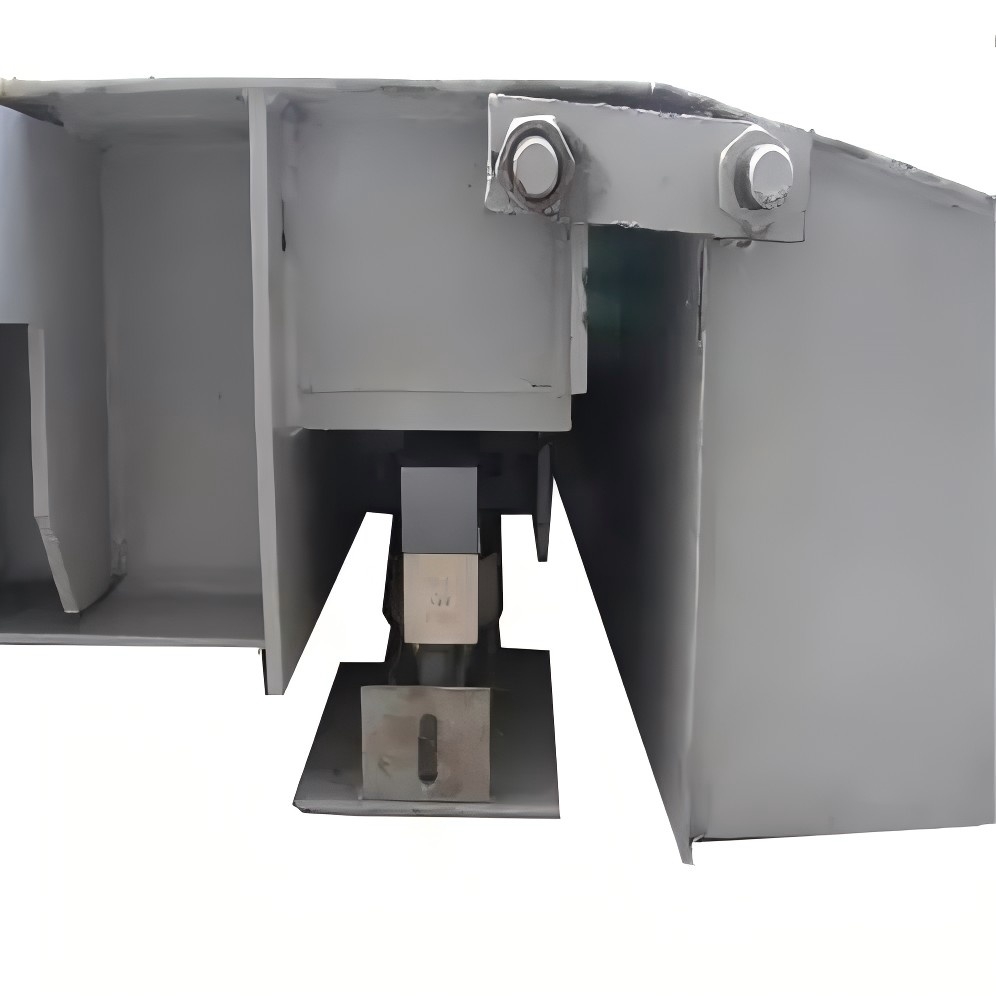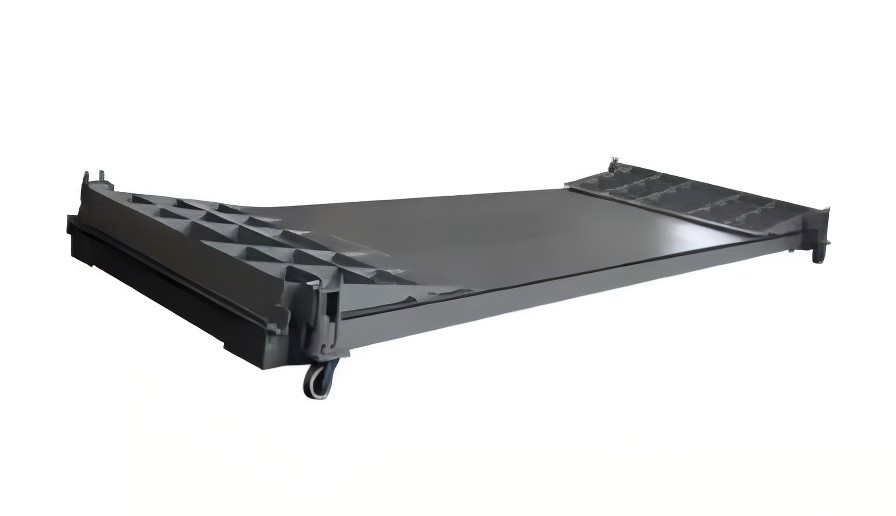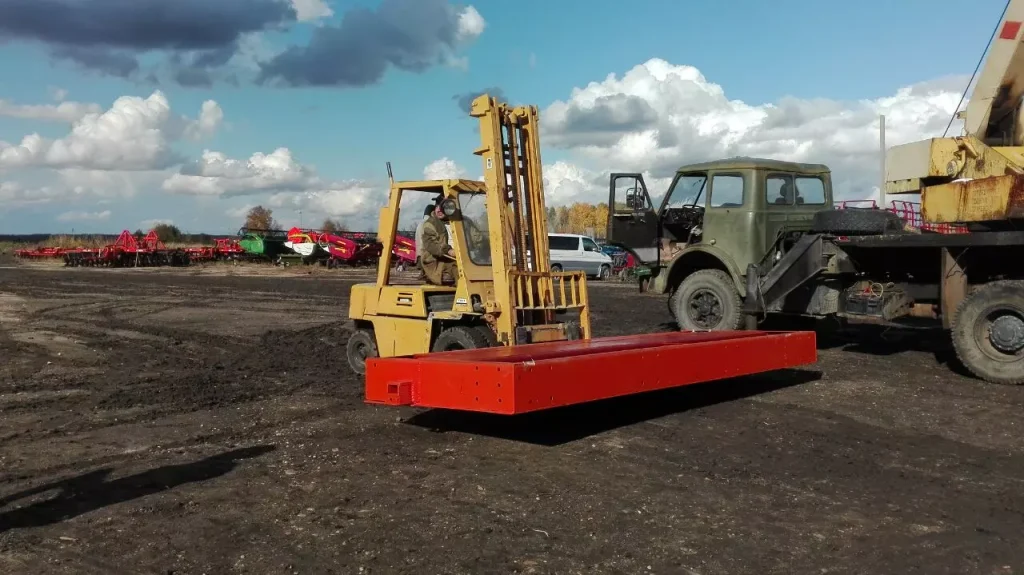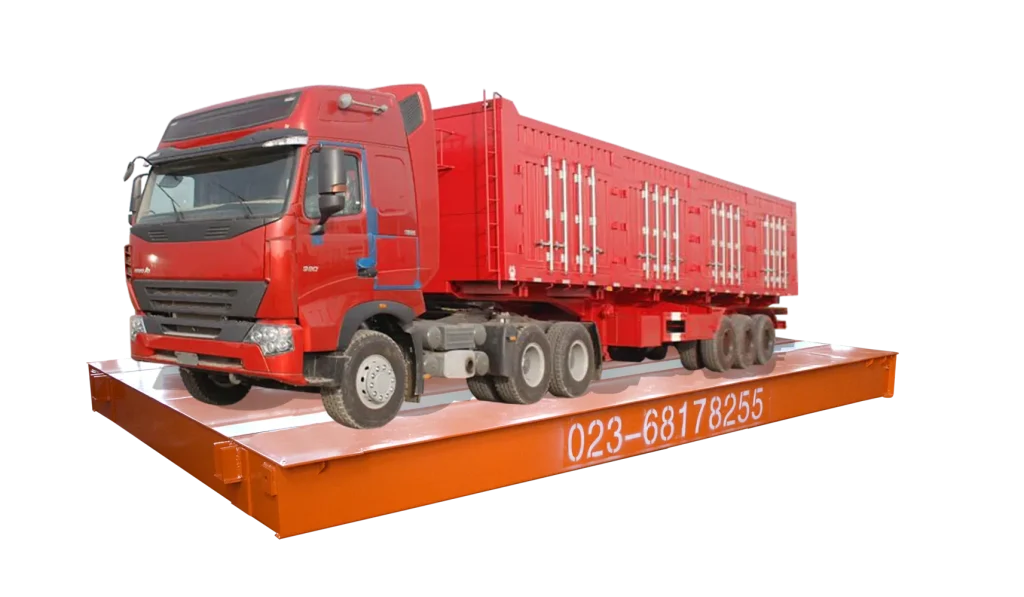The Increasing Demand for Mobile Weighbridges
Weighbridges have long played a crucial role in various industries, ensuring accurate and efficient weight measurement of vehicles and their cargo. Traditionally, these systems have been permanent installations, often massive concrete structures embedded in the ground. However, as businesses look for more efficient and cost-effective ways to weigh goods, the demand for mobile weighing solutions is on the rise. This is due to their portability, ease of installation, and lower cost compared to traditional fixed weighbridges. This article explores the advantages of mobile weighbridges, the factors driving this rising demand, and the diverse applications they cater to.

Deep Dive into the Advantages of Mobile Weighbridges
Mobile weighbridges offer a multitude of advantages over their permanent counterparts, making them a versatile and attractive option for diverse applications. Let’s delve deeper into some key advantages:
1. Enhanced Efficiency and Time Savings
- Faster Setup and Deployment: Mobile weighbridges typically require minimal setup time, often involving simply leveling the platform and connecting power. This compares favorably to the lengthy and complex installation process of permanent weighbridges, which can involve significant downtime and disruption.
- Reduced Wait Times: With faster deployment and efficient weighing processes, mobile weighbridges significantly decrease wait times for vehicles, leading to improved overall operational efficiency. This is particularly beneficial in situations with high-volume traffic, minimizing congestion and delays.
- Streamlined Operations: The portability of mobile weighbridges allows for on-site weighing, eliminating the need for travel and associated logistical complexities. This streamlines the entire weighing process, saving time and resources.
2. Cost-Effectiveness
- Lower Initial Investment: Compared to permanent weighbridges, mobile units typically come with a lower upfront cost. This makes them a more accessible option for businesses with tighter budget constraints or those requiring a temporary weighing solution.
- Reduced Maintenance Costs: The simpler design and portability of mobile weighbridges often translate to lower ongoing maintenance costs compared to complex permanent installations. This includes reduced expenses for foundation upkeep, repairs, and potential upgrades.
- Flexibility for Seasonal or Temporary Needs: Businesses with seasonal or temporary weighing requirements can benefit significantly from the cost-effectiveness of mobile weighbridges. They eliminate the need for permanent infrastructure investments that might only be utilized for specific periods.
3. Increased Safety and Adaptability
- Improved Safety in Hazardous Environments: Mobile weighbridges can be strategically positioned in safer areas within worksites or facilities, minimizing the risk of accidents associated with operating permanent weighbridges in potentially hazardous locations.
- Adaptability to Uneven Terrain: Unlike permanent weighbridges that require a level foundation, mobile units can often be deployed on uneven terrain with minimal adjustments, making them suitable for various on-site applications.
- Emergency Response and Disaster Relief: The portability of mobile weighbridges makes them valuable assets for emergency response and disaster relief efforts. They can be quickly deployed to assess the weight of critical supplies, debris, or equipment, facilitating efficient logistics and response operations.
4. Data Management and Integration
- Real-time Data Collection and Transmission: Modern mobile weighbridges often integrate seamlessly with data management systems, allowing for real-time weight data collection and transmission. This facilitates efficient recordkeeping, analysis, and reporting, improving decision-making and inventory control.
- Remote Monitoring and Control: Certain advanced mobile weighbridges offer remote monitoring and control capabilities, allowing operators to manage the weighing process from a centralized location. This enhances efficiency, reduces manual intervention, and improves overall operational control.
By understanding these multifaceted advantages, businesses can make informed decisions about whether mobile weighbridges are the right solution for their specific needs and applications.

Factors Driving the Increased Demand for Mobile Weighbridge
Beyond the inherent advantages of mobile weighbridges, several external factors are fueling their surging demand.
Firstly, the growing focus on operational efficiency across industries is driving the adoption of faster and more adaptable solutions. Mobile units significantly reduce turnaround times for weighing operations, leading to higher productivity and streamlined workflows. This resonates particularly in sectors like construction and logistics, where time is often a valuable commodity.
Secondly, evolving regulations aimed at ensuring road safety and infrastructure protection are mandating stricter weight limits for vehicles. This necessitates a shift from relying solely on permanent weighbridges to conducting weight checks at various locations. Mobile weighbridges empower authorities and businesses to conduct these checks efficiently, facilitating regulatory compliance and fostering a safer transportation ecosystem.
Furthermore, the expansion of applications beyond traditional sectors like construction and logistics is contributing to the rise in demand. The versatility of mobile weighbridges makes them ideal for diverse applications – from weighing agricultural produce and livestock in rural settings to efficiently managing waste streams in recycling facilities. This adaptability caters to a wider market, creating new opportunities for manufacturers and users alike.
Finally, technological advancements are playing a crucial role in propelling the adoption of mobile weighbridges. Integration with data management systems and the incorporation of automation features empower seamless recording, analysis, and transmission of weight data. This real-time access to data enhances operational efficiency, facilitates informed decision-making, and promotes transparency across various industries. With continued advancements in technology, mobile weighbridges are expected to become even more sophisticated and user-friendly, further fueling their growing popularity.

Applications of Mobile Weighbridges
Mobile weighbridges, with their unique blend of portability and functionality, have carved a niche for themselves in a diverse range of industries. Let’s delve deeper into some prominent applications and explore the specific benefits they offer.
1. For Construction and Demolition
- Weighing construction materials: Precise weight measurement of materials like concrete, aggregates, and steel is crucial for accurate mixing ratios, load calculations, and ensuring structural integrity. Mobile weighbridges enable on-site weighing, eliminating the need for transportation and potential weight discrepancies.
- Monitoring equipment weight: Construction equipment like excavators, bulldozers, and cranes often require weight monitoring for safe operation and compliance with weight limits on bridges or soft surfaces. Mobile weighbridges provide a convenient solution for on-site equipment weighing.
- Debris and waste management: Accurate weight measurement of demolition debris and construction waste is essential for proper disposal and billing purposes. Mobile weighbridges facilitate efficient debris management by enabling on-site weighing and streamlining the process.
2. For Recycling and Waste Management
- Sorting and processing: Efficient sorting and processing of recyclable materials like paper, plastic, and metal rely on accurate weight data. Mobile weighbridges allow for on-site weighing of various waste streams, facilitating efficient sorting and maximizing recycling efforts.
- Compliance with regulations: The recycling and waste management industry is subject to strict regulations regarding waste composition and weight limits. Mobile weighbridges empower companies to ensure compliance by providing accurate weight data for different waste categories.
- Billing and invoicing: Accurate weight data is crucial for fair and transparent billing in the waste management industry. Mobile weighbridges with integrated data management systems can generate precise weight records, streamlining the billing process for both waste haulers and clients.

3. For Agriculture
- Harvesting and yield estimation: Accurate weighing of crops like grains, fruits, and vegetables is essential for yield estimation, inventory management, and determining crop value. Mobile weighbridges enable on-site weighing, reducing transportation costs and ensuring accurate yield data.
- Livestock management: Weighing livestock at different stages of growth plays a vital role in herd health monitoring, medication dosage calculations, and determining market value. Mobile weighbridges offer a convenient and stress-free solution for on-farm livestock weighing.
- Fertilizer and input management: Precise measurement of fertilizer, feed, and other agricultural inputs is crucial for optimizing resource utilization and maximizing crop yield. Mobile weighbridges enable on-site weighing of these inputs, minimizing waste and ensuring efficient farm management.
4. For Events and Exhibitions
- Temporary weighing needs: Events and exhibitions often require temporary weighing solutions for equipment, materials, or even visitor vehicles. Mobile weighbridges offer a cost-effective and efficient way to address these temporary needs without the hassle of permanent installations.
- Safety and security: In events involving heavy equipment or large crowds, ensuring weight compliance is crucial for safety. Mobile weighbridges can be deployed strategically to monitor equipment weight and prevent potential accidents.
- Logistics and inventory control: Mobile weighbridges can be used at event venues to accurately weigh incoming and outgoing materials and equipment, facilitating efficient logistics management and inventory control.
5. For Law Enforcement
- Roadside weight checks: Mobile weighbridges empower law enforcement agencies to conduct efficient roadside weight checks for commercial vehicles. This helps ensure compliance with weight limits, prevents road damage from overloaded vehicles, and promotes road safety.
- Mobile enforcement: Mobile weighbridges provide law enforcement with the flexibility to conduct weight checks in various locations, deterring overloading practices and improving overall compliance across the transportation network.
- Data collection and analysis: Integrated data management systems in mobile weighbridges can capture weight data and vehicle information, enabling law enforcement to analyze trends, identify repeat offenders, and optimize enforcement strategies.
Conclusion
The demand for mobile weighbridges is demonstrably on the rise, driven by their inherent advantages, evolving industry needs, and technological advancements. Their portability, efficiency, and cost-effectiveness make them a compelling alternative to traditional permanent weighbridges. As technology continues to evolve and applications diversify, mobile weighbridges are poised to play an increasingly important role in streamlining operations, ensuring compliance, and optimizing processes across various sectors.





